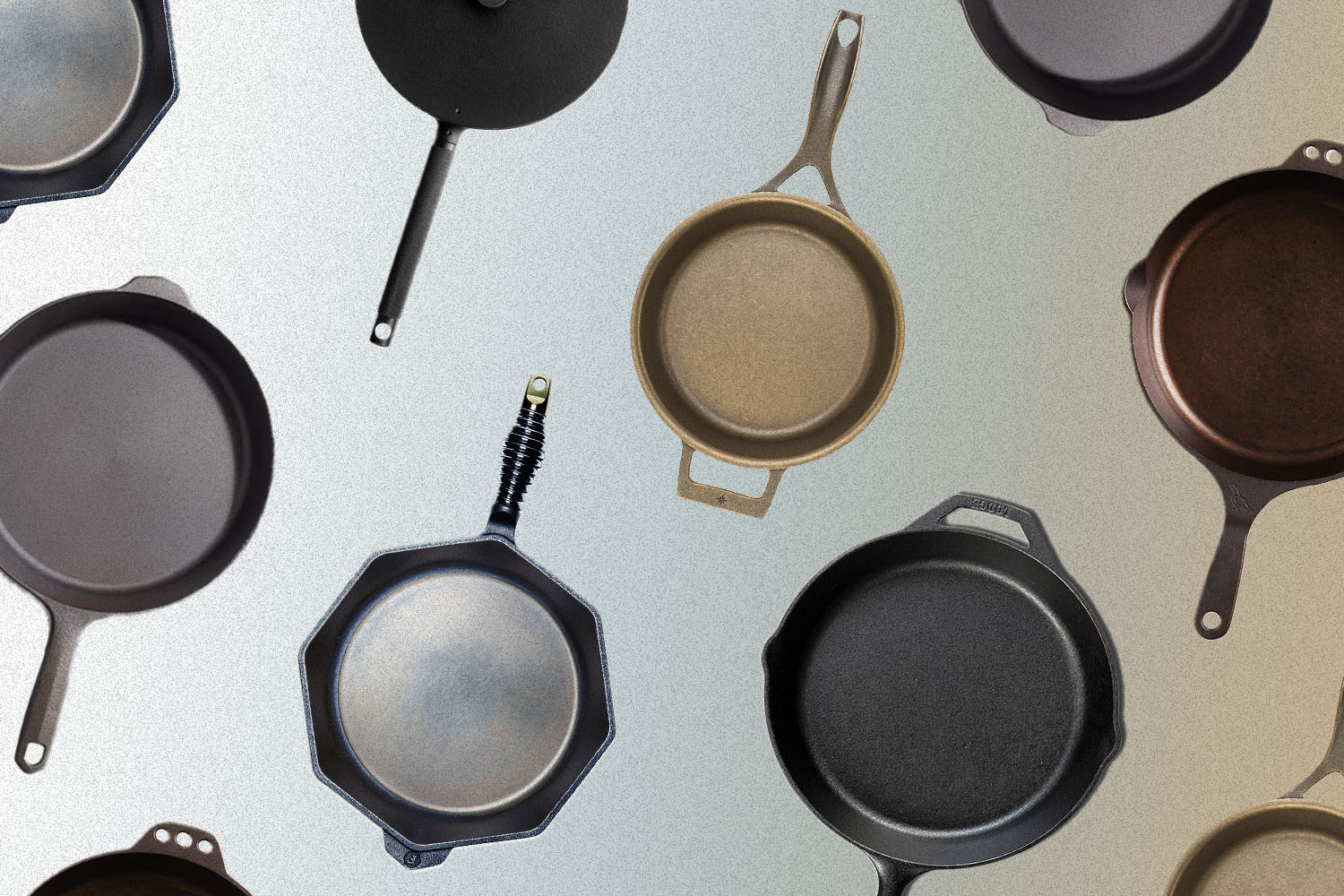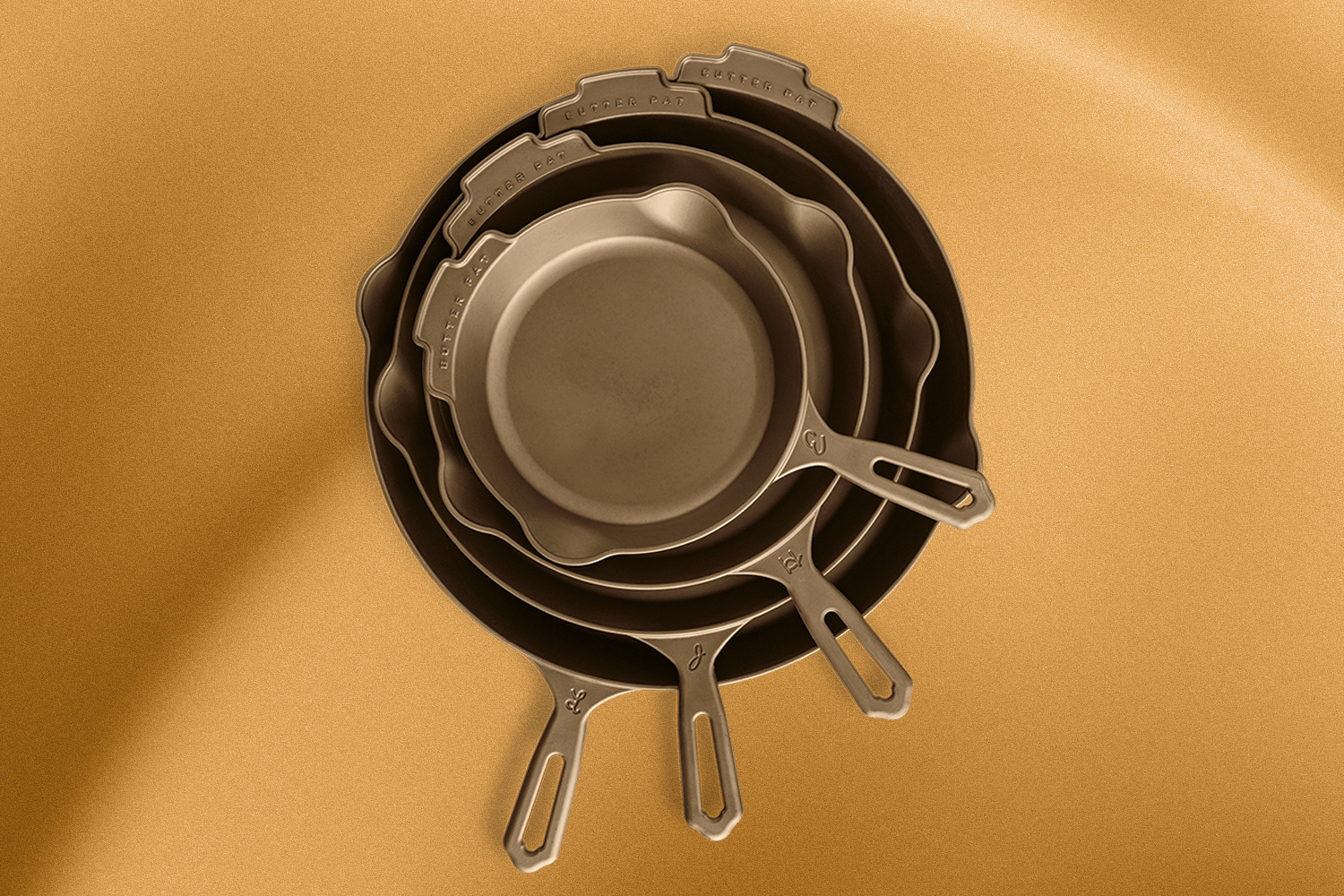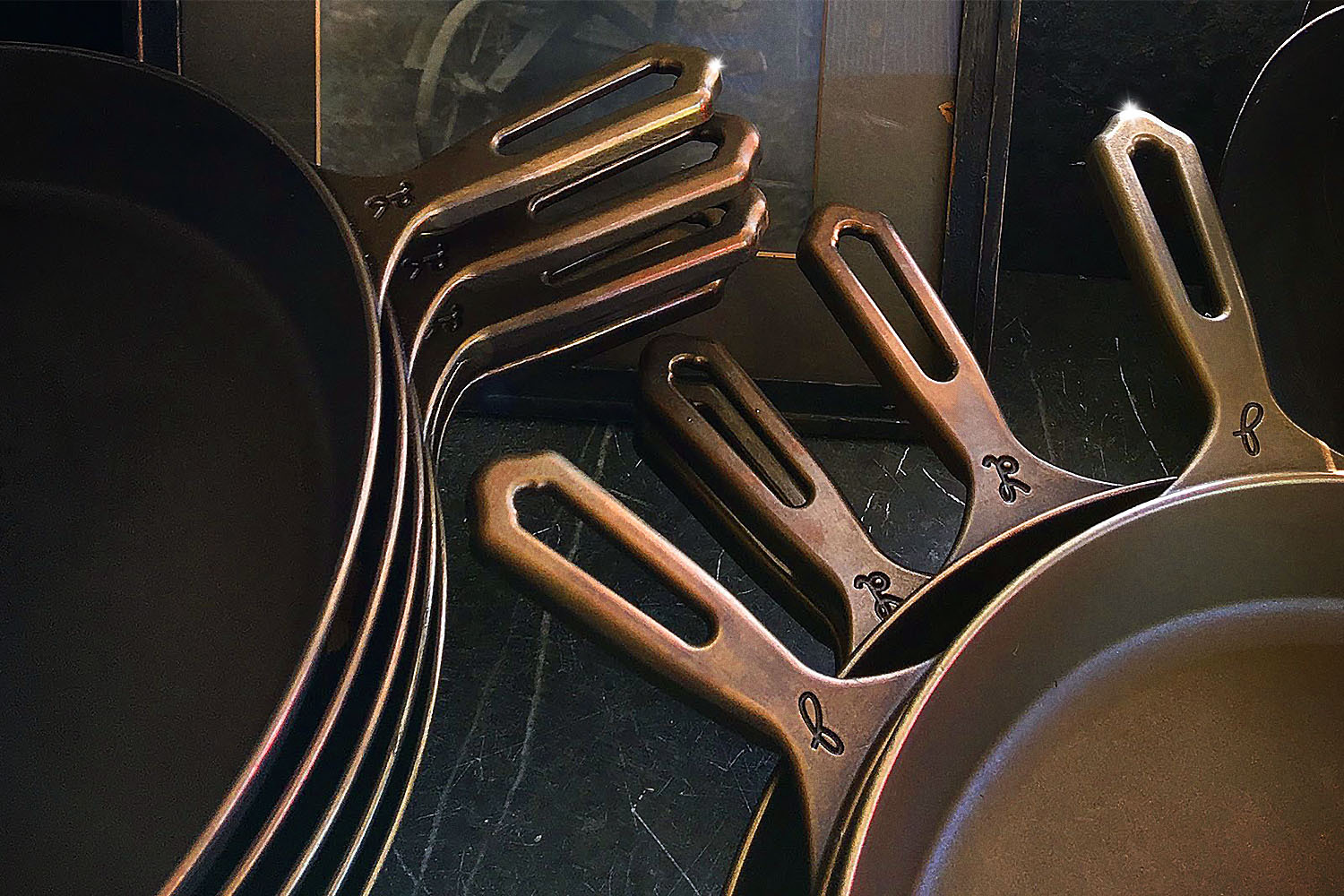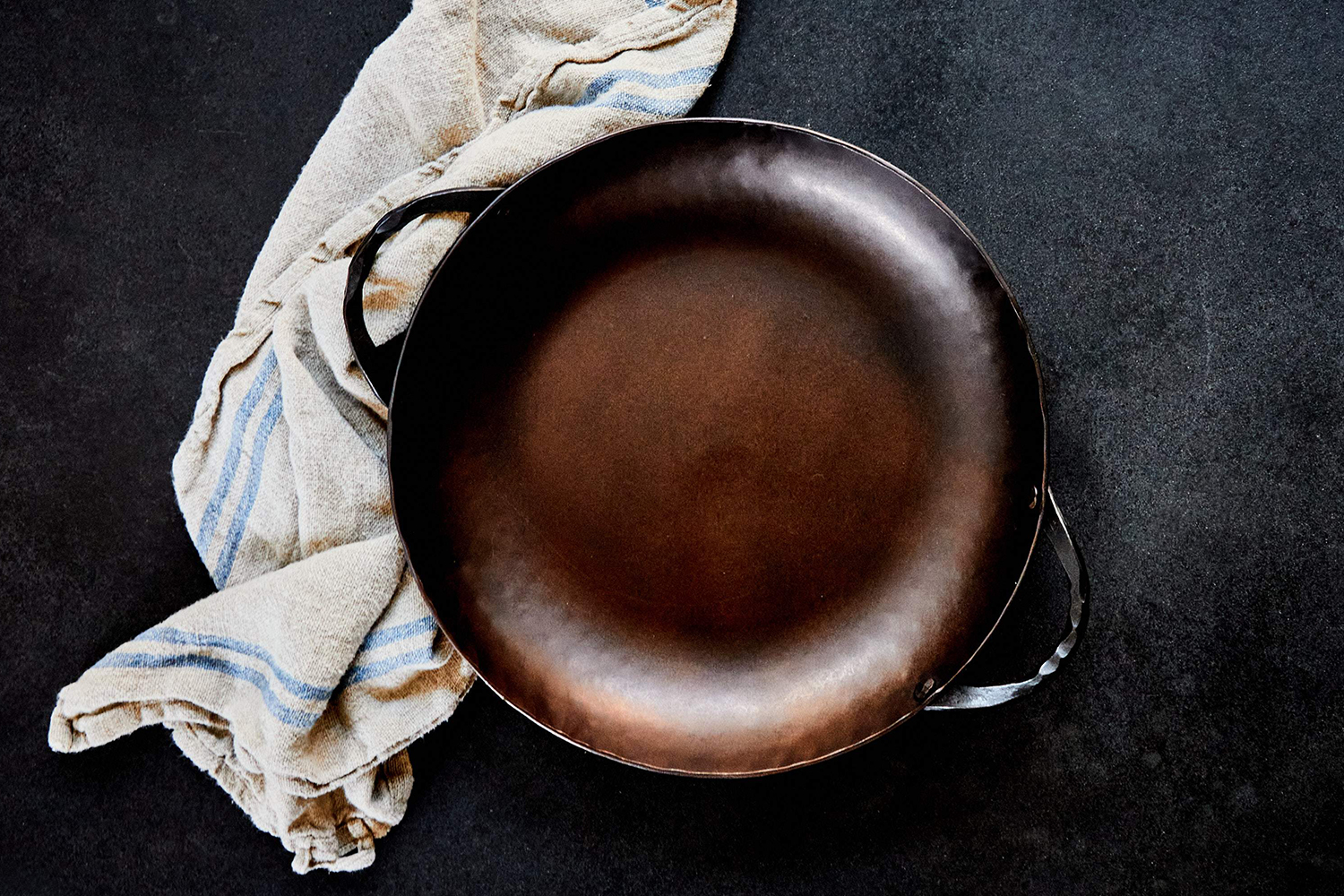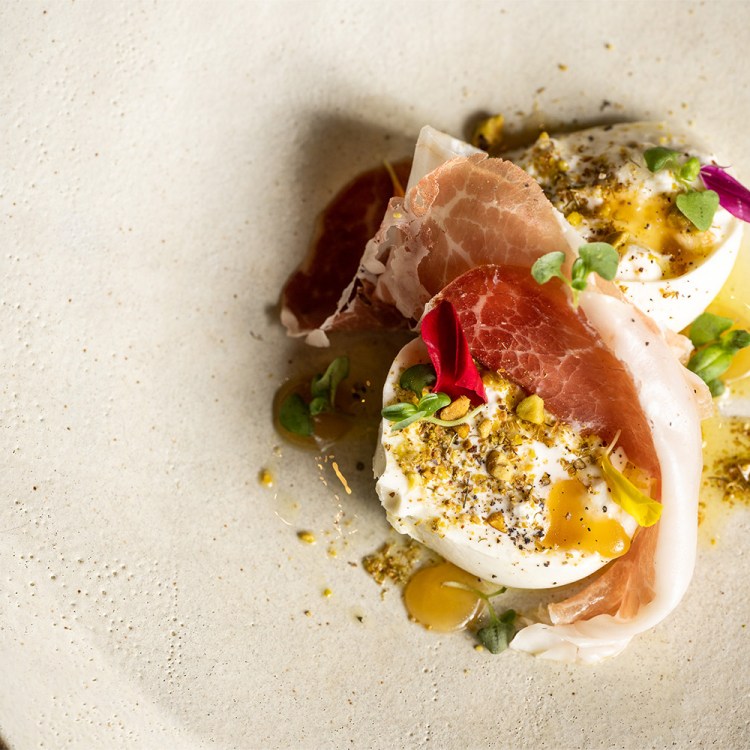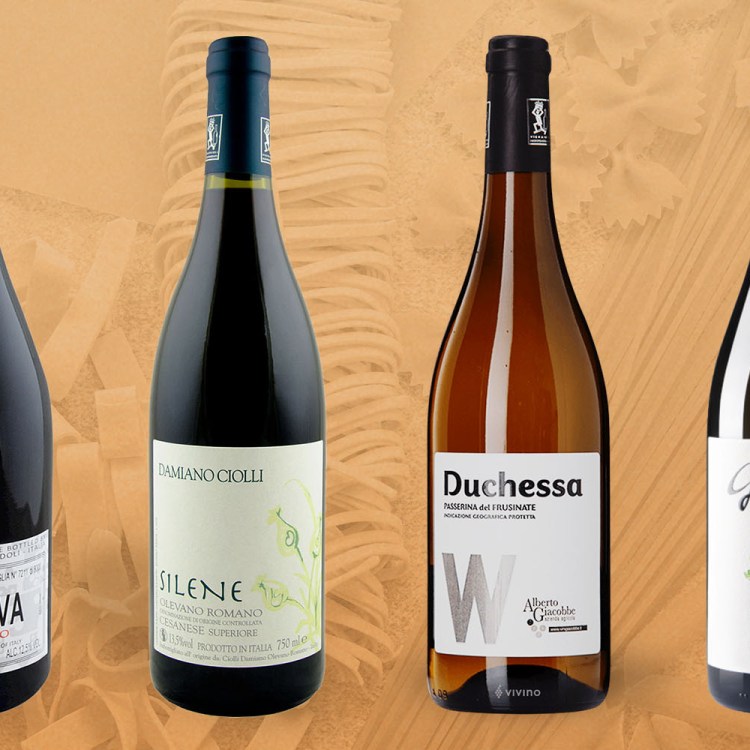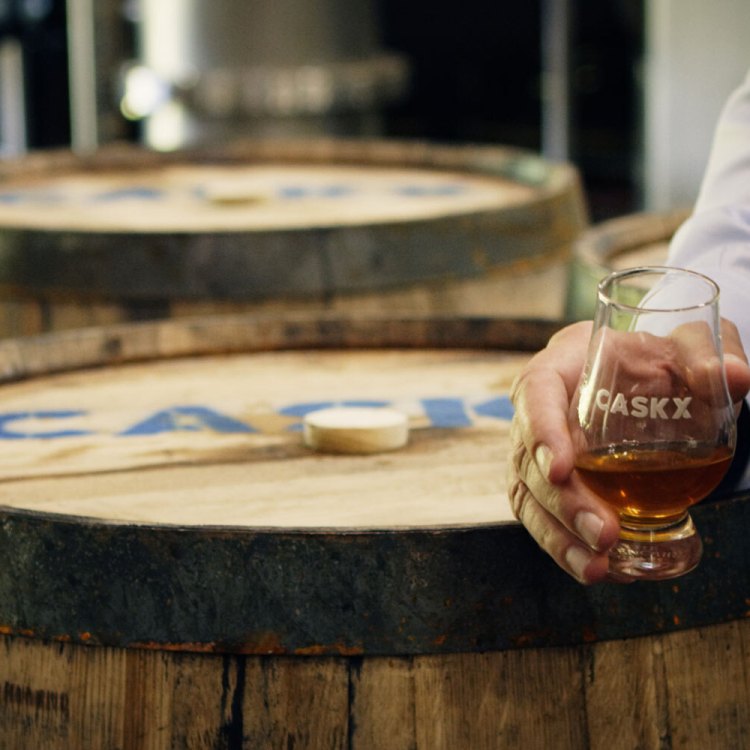Nota bene: If you buy through the links in this article, we may earn a small share of the profits.
Cast iron has seen a wild resurgence in the last decade, but along with that renewed interest has come the same backlash that made it obsolete in the first place (though now that backlash is in meme form). The problems that plagued the heritage skillets — they’re heavy, harder to maintain and often more expensive than stainless-steel and nonstick pans — are still problems today.
If the biggest problem you have with cast iron is the weight, you’ll want to check out Field Company. A relatively new player in the space, the outfit got its start on Kickstarter back in 2016 with a campaign for their No. 8 skillet, pitching it as lighter than the competition (and lighter than an Apple MacBook Pro). They raised over $1.6 million and then, unlike many overachieving projects in the crowdfunding space, actually delivered on their promise. Today the brand offers five different size skillets, matching lids for most of them and a Dutch oven, and it’s all made right here in the U.S.
I’ve been testing that inaugural skillet for a few months now trying to decide if their lighter construction really does make all the difference when compared to other brands. And believe me when I tell you these are noticeably lighter; I’ve got a handful of other brands, from Lodge to Butter Pat, in my cupboard, and my forearms thank me whenever I reach for the Field Company skillet.
(Almost) the Lightest Cast Iron Skillet
OK, you don’t have to take my word for it. The Field Company No. 8 Skillet, which features a cooking surface diameter of 8 ¾” and a lip-to-lip diameter of 10 ¼”, weighs just 4.5 pounds. While there is no universal standard for pan size among cast iron producers, most comparable pans from other top brands like Finex, Butter Pat, Smithey and Stargazer are in fact heavier. The one exception to this is that Lodge has its own lightweight line called Blacklock that does weigh less, though the dimensions are not one-to-one. (Other more popular Lodge models are heavier.)
That’s not to say it’s comparable to a nonstick or stainless steel pan, for when my No. 8 is packed full of food — as it was when I recently tested an apple pie recipe — it can take two hands to maneuver. But most nonstick and stainless steel skillets also can’t handle baking four and a half pounds of apples in an oven for over an hour. So if you’re looking for a super smooth, USA-made cast iron pan that’s lighter than most — and easier on your stovetop, oven rack, cupboard shelving and forearms — the Field Company model is a satisfying piece of cookware.

Is Field Company Worth It?
That said, while Field Company’s lightweight design lived up to the hype, I had issues with the brand’s other claims. The company, similar to many other modern cast iron brands, says its skillets are “naturally nonstick.” When I got in touch with them back in February, they said “they’re pretty nonstick right out of the box, and get better every time you use them.”
I did find that the cooking process got easier over time after using it for a few months, and my dad even commented on how smooth the pan looked when I brought it over after baking pecan sticky buns for his birthday. But looks can be deceiving. When I tried to do my daily stovetop cooking with the skillet — frying eggs, sauteing vegetables — I often had problems with sticking, even when using some extra oil or butter. A lightweight metal spatula helped in this regard, but I’ve still not reached a point where I’d call my pan nonstick. (As Field Company notes, metal utensils are OK to use on their pans, as long as you’re not scratching and scraping with heavy tools or cutting with knives.)
But while quick stovetop dishes left much to be desired, the Field Company excelled in the oven, and especially at bakes. While pecan sticky buns are notorious for turning into glue in your mouth and on your bakeware, when I used my No. 8 skillet they baked to perfection and flipped out onto a plate with almost no cleanup time (as you can see from the main photo above). As for pie, a notoriously tough dessert to make from scratch for home cooks, Field Company’s deep, thin cast iron gave me a golden, flaky crust and the dessert similarly slipped out of the pan without incident.
For the latter recipe, I used one on the brand’s own website. That’s another thing I love about this company — while other cookware brands, whether we’re talking cast iron or not, often feature recipes on their websites, Field Company’s list of recipes and tips in their Explore section are legitimately tasty and useful.
After a thorough testing process, there were many traits I loved about my Field Company skillet. It’s light, simple, comfortable in the hand, great in the oven and beautiful on the stovetop and in the campfire. If you’re looking for one cast iron pan that can do everything and replace your other skillets, I can’t recommend it as your best option. But if you’re looking for a lightweight option to cook specific dishes — your steaks, grilled sandwiches, cornbread, pie, etc. — then this is a worthy addition to your kitchen.
We've put in the work researching, reviewing and rounding up all the shirts, jackets, shoes and accessories you'll need this season, whether it's for yourself of for gifting purposes. Sign up here for weekly style inspo direct to your inbox.

